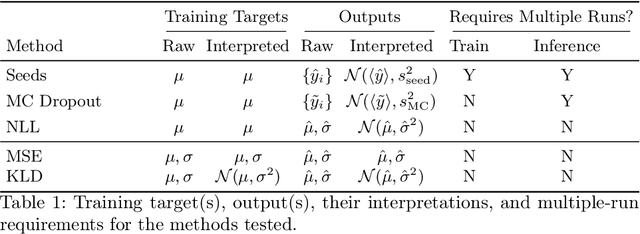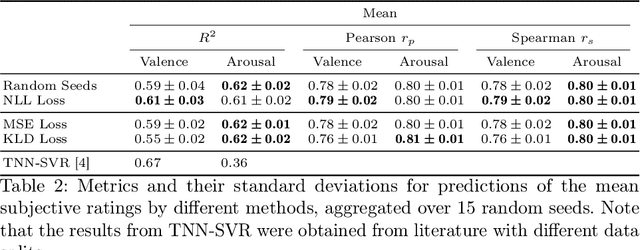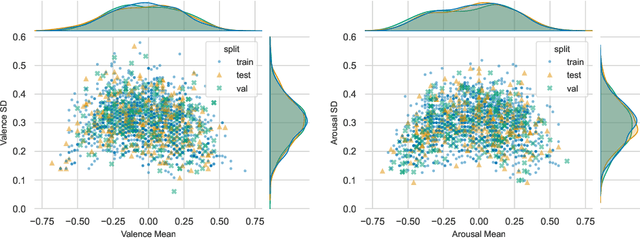T. Aleksandra Ma
Uncertainty Estimation in the Real World: A Study on Music Emotion Recognition
Jan 20, 2025



Abstract:Any data annotation for subjective tasks shows potential variations between individuals. This is particularly true for annotations of emotional responses to musical stimuli. While older approaches to music emotion recognition systems frequently addressed this uncertainty problem through probabilistic modeling, modern systems based on neural networks tend to ignore the variability and focus only on predicting central tendencies of human subjective responses. In this work, we explore several methods for estimating not only the central tendencies of the subjective responses to a musical stimulus, but also for estimating the uncertainty associated with these responses. In particular, we investigate probabilistic loss functions and inference-time random sampling. Experimental results indicate that while the modeling of the central tendencies is achievable, modeling of the uncertainty in subjective responses proves significantly more challenging with currently available approaches even when empirical estimates of variations in the responses are available.
Music auto-tagging in the long tail: A few-shot approach
Sep 12, 2024Abstract:In the realm of digital music, using tags to efficiently organize and retrieve music from extensive databases is crucial for music catalog owners. Human tagging by experts is labor-intensive but mostly accurate, whereas automatic tagging through supervised learning has approached satisfying accuracy but is restricted to a predefined set of training tags. Few-shot learning offers a viable solution to expand beyond this small set of predefined tags by enabling models to learn from only a few human-provided examples to understand tag meanings and subsequently apply these tags autonomously. We propose to integrate few-shot learning methodology into multi-label music auto-tagging by using features from pre-trained models as inputs to a lightweight linear classifier, also known as a linear probe. We investigate different popular pre-trained features, as well as different few-shot parametrizations with varying numbers of classes and samples per class. Our experiments demonstrate that a simple model with pre-trained features can achieve performance close to state-of-the-art models while using significantly less training data, such as 20 samples per tag. Additionally, our linear probe performs competitively with leading models when trained on the entire training dataset. The results show that this transfer learning-based few-shot approach could effectively address the issue of automatically assigning long-tail tags with only limited labeled data.
 Add to Chrome
Add to Chrome Add to Firefox
Add to Firefox Add to Edge
Add to Edge